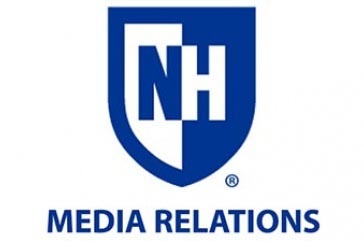UNH Research Center Releases 2021 Global Social Franchise Index

DURHAM, NH — The Global Social Franchise Index, an index developed by the Rosenberg International Franchise Center (RIFC) at the University of New Hampshire, ranks 131 countries according to the impacts social entrepreneurship and social franchising can have on the well-being of their populations. This annual index incorporates country metrics that include people’s health conditions, education levels, incomes, and population size, as well as the riskiness of operating in that country.
“Risks taken into account in this index include political, economic, legal and regulatory risks, as well as geographic distance and cultural distance,” said Dr. E. Hachemi Aliouche, director of the RIFC. “The lower the risks of operating in a given country, the more likely these business models can be successful.”
“Social entrepreneurship and social franchising can be powerful ways to efficiently alleviate poverty, improve health, provide educational opportunities and improve other social problems for people at the bottom of the pyramid in the most disadvantaged countries identified in the index,” said Aliouche.
The top 10 countries ranked in the 2021 index are all in Africa: Gambia, Liberia, Chad, Lesotho, Swaziland, Mauritania, Niger, Mali, Gabon, and Burkina Faso, in this order. “These are the countries that may benefit most from social entrepreneurship and social franchising,” said Aliouche, noting that this year’s top 10 are nearly identical to those in 2020, with Mauritania improving slightly by moving down from 5th to 6th, and Gabon being the sole new addition.
The dramatic gap between rich countries and poor countries is illustrated by a comparison of some of the key metrics used in the index for Norway and Niger (the richest and the poorest countries in the index): the average person in Niger lives 20 years less than the average Norwegian, has 11.6 years less schooling, and earns 55.4 times less in income. It thus takes the average person in Niger more than a full year to earn what the average person in Norway earns in less than one week!
The Rosenberg International Franchise Center is a center of excellence for franchise research, education, and outreach at the Peter T. Paul College of Business and Economics at the University of New Hampshire.
To learn more about the Rosenberg International Franchise Center or to view the full list of rankings, visit paulcollege.unh.edu/rosenberg/franchise-indices.
The University of New Hampshire inspires innovation and transforms lives in our state, nation and world. More than 16,000 students from all 50 states and 71 countries engage with an award-winning faculty in top-ranked programs in business, engineering, law, health and human services, liberal arts and the sciences across more than 200 programs of study. As one of the nation’s highest-performing research universities, UNH partners with NASA, NOAA, NSF and NIH, and receives more than $110 million in competitive external funding every year to further explore and define the frontiers of land, sea and space.
PHOTO FOR DOWNLOAD:
https://www.unh.edu/unhtoday/sites/default/files/media/2021globalsocfranchindex_top101.jpg
Latest News
-
January 12, 2026
-
December 4, 2025
-
November 26, 2025
-
November 6, 2025
-
November 5, 2025













































